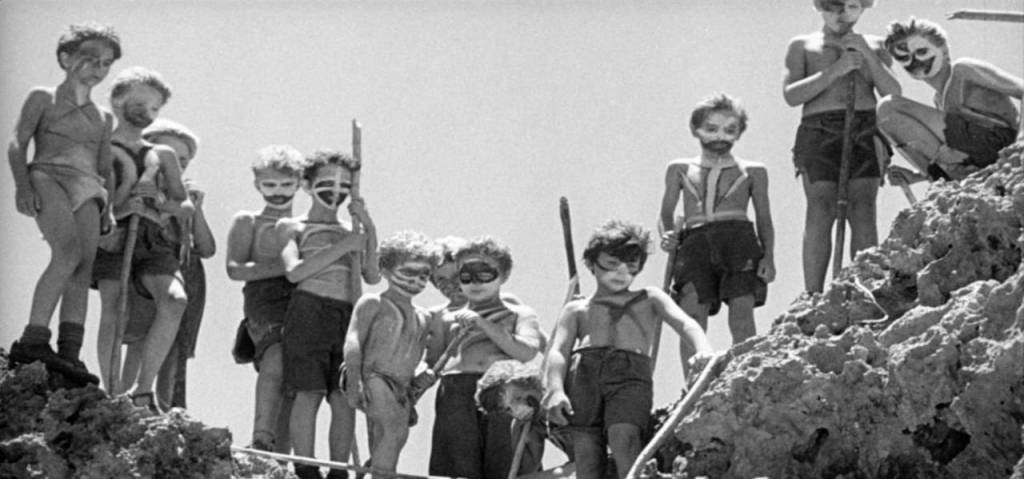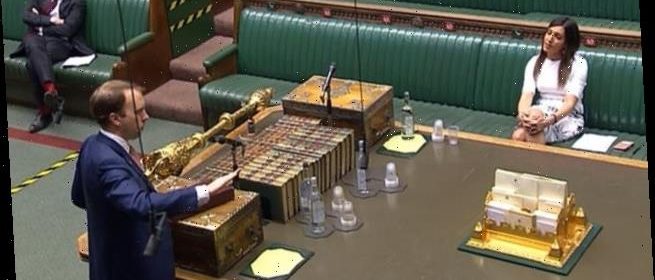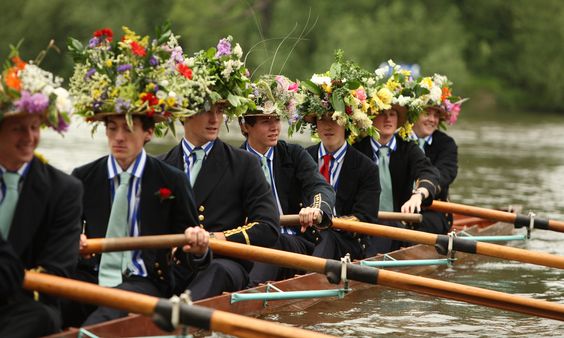
This is to my mind the best cartoon of the coronavirus saga so far. Martin Rowson’s sharp satirical pen catches the fatuous disjunct between the Tories’ tiresome invocation of military metaphor and the heroes this land was supposed to be fit for, who are now dying by the dozen thanks to the failure to address the vulnerability of care homes. VE day brought out streams of Union Jacks to underscore the notion that we were involved in a fight similar to World War II, despite the detail that most waving them and invoking that nostalgia were not alive at the time. Even back in 1982, my father – a veteran of the Royal Navy torpedoed twice during the War – found the gung-ho jingoism of the Falklands conflict distasteful and ill-informed. Torpedoing the Argentinian cruiser General Belgrano, with the loss of 386 lives, when it was outside the 200-mile exclusion zone, was arguably a war crime, but of course those tend to only be committed by the losing side – and after all it helped rehabilitate Margaret Thatcher’s popularity ratings. In 1981 her government enjoyed an all-time low approval rate of just 16%; the Falklands boosted it to 52%. By coincidence this is the current approval rate for the Johnson government’s handling of the pandemic, but in this case down from a March high of 67%.

The Falklands was at a time when the Sun was cruising towards its all-time circulation high of nearly 5 million and its later headline claim – after the Tories’ surprise win in April 1992 – that “It’s the Sun Wot Won It”. This appeal to the bellicose British nature remains central to the nation’s polity, rather giving the lie to the thesis of Rutger Bregman, that people are nicer than we think. He is the Dutch journalist who made a splash last year haranguing the global elite for taking 1,500 private jets to Davos to hear David Attenborough talk about the climate crisis. His new book Humankind: A Hopeful History aims to rehabilitate Rousseau’s thesis that “man is naturally good”, in opposition to the Hobbesian convention that we are all animals needing restraint by the institutions of civilisation. Among his targets, he blames the widespread educational dissemination of William Golding’s Lord of the Flies as entrenching this negative view of human nature in the young. Well, it was the first ‘grown-up’ book I read, and I certainly recognised the feral portrait in the combative culture of my school. (Golding wrote it while a schoolmaster in Salisbury, where I grew up.)

Bregman predictably cites the “explosion of cooperation and altruism and people organising stuff from the bottom up” during the pandemic, which is true, as are the over 200,000 grasses to the police about neighbours allegedly breaking the lockdown rules, and the car parks closed in local villages to see off any town-dwellers desperate to walk in the country. People have certainly rediscovered local community in adversity, reversing the social fragmentation that commuting and long working days has wrought on many areas, with consequential loss of pubs and local shops. The latter have been grateful beneficiaries of the lockdown, and so would pubs be, if allowed to re-open before they all go bust. But those renascent communities taking to the streets on VE Day with their Union Jacks were likely the narrow majority which brought us to the Brexit pass and, like the Daily Mail did last week, probably think VE stands for ‘Victory Over Europe’ rather than Victory in Europe. As John Harris wrote in the Guardian this week:
“Britain was led into the disaster of Brexit by people successfully sowing the ludicrous idea that subjecting ourselves to self-harm would somehow awaken the Blitz spirit and revive past glories. Amid Friday’s juxtaposition of the 75th anniversary of VE day and a deepening sense of national crisis, as well as solemn remembrance, there was inevitably some of the same stuff. These things play into deep elements of the English psyche, shot through with the lingering traces of deference and always ready to be manipulated by Tory politicians.”
Inconveniently for them, the number of Covid-19 deaths in the UK now exceeds the total number of civilians killed in the Blitz, as well as in every other country in Europe. Rattled, the government is ludicrously questioning these figures, while flagrantly massaging the numbers now being tested to pretend they have met their targets. Revealing his true nature, Health Secretary Nick Hancock angrily turned on Labour MP Rosena Allin-Khan, a working A&E intensive care specialist, for daring to mention this and say that the government’s strategy was increasing loss of life, saying it was untrue and she “might do well to take a leaf out of the shadow secretary of state’s book in terms of tone”.

This was tantamount to the old right-wing saw that anyone who doesn’t fly the flag and swear blind obedience is a traitor (despite working 12 hours a day in an NHS hospital). Just as Johnson fancies himself Churchill reincarnate – more of a Churchill tribute act, in Jonathan Freedland’s coinage – his under-strappers see themselves as a war cabinet with exceptional powers, but, as Freedland concludes, “We are fighting a different war now, against an invisible enemy, and led by lesser men.”

In 1941, George Orwell wrote: “Probably the battle of Waterloo was won on the playing fields of Eton, but the opening battles of all subsequent wars have been lost there.” Far from our current situation being comparable with 1945, or even the likelier 1939 – when Britain stood alone – this situation is more reminiscent of 1914, with the First Battle of the Marne over, but Verdun, Ypres and the Somme to come. It wasn’t until eight and a half months into the Second World War, eighty years ago yesterday – 10th May 1940 – that Churchill became Prime Minister of a war cabinet and a coherent war strategy emerged. And without the cooperation of the Russians and the Americans, the outcome would probably have been very different. We would be part of a Europe we couldn’t escape. Churchill’s victory speech five years later paid tribute to “our great Russian allies” and “our gallant allies of the United States”. Later, in Zurich, he said “We must recreate the European family in a regional structure called, it may be, the United States of Europe.” In 1951, he again warned against “the disadvantages and even dangers of standing aloof” from a more united Europe. Closer ties with Europe were vital he believed, even if it meant “the abrogation of national sovereignty”. Somehow, Johnson’s speech writers manage to leave these lines out of his tribute act.
Meanwhile, Wycombe’s own Tory MP Steve Baker – the one with a hairdo like those pots of mustard & cress the kids brought home from school – has branded the government’s lockdown rules “absurd, dystopian and tyrannical”, and threatens those like him on the loony right may withdraw their support. Having a healthy majority, and having purged anyone of principle from the party’s ranks, that is one threat Johnson can weather. But it is not in the big words and bluster that this mess finds its form, but in its feckless incompetence and vacuous vacillation. The philosopher Hannah Arendt coined the controversial phrase ‘the banality of evil’ in reporting for the New Yorker in 1961 the war crimes trial of Adolf Eichmann, organiser of transports for the Final Solution. Hers is a hotly contested view, but she believed Eichmann “never realised what he was doing” due to an “inability… to think from the standpoint of somebody else”. Lacking this particular cognitive ability, led him to “commit crimes under circumstances that made it well-nigh impossible for him to know or to feel that he [was] doing wrong”. A lack of empathy, a failure of imagination, a clueless culpability while mechanically obeying orders are features all too familiar in the current climate. Rowson’s invocation of the phrase will aggravate many, but seems justified to me.


